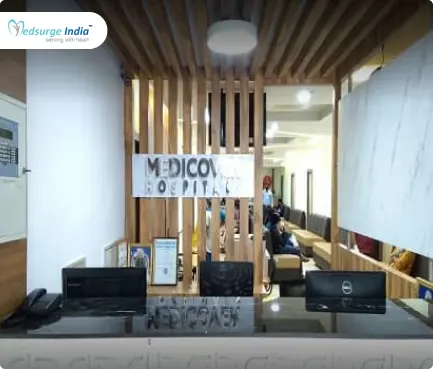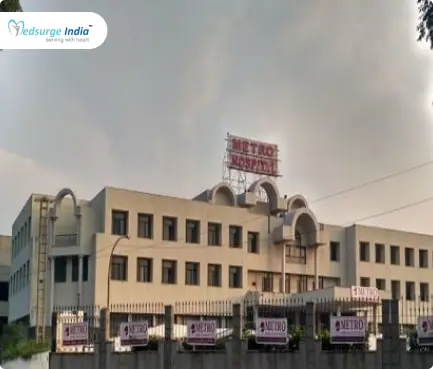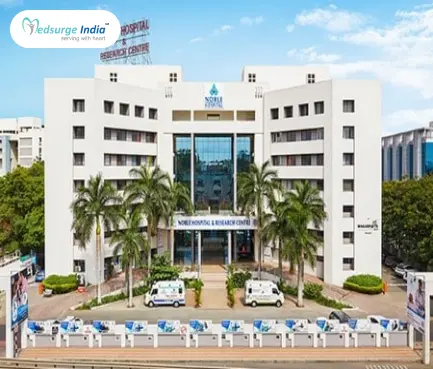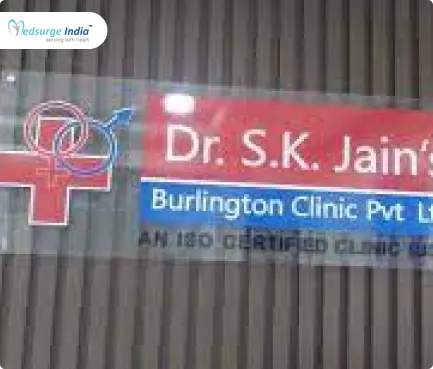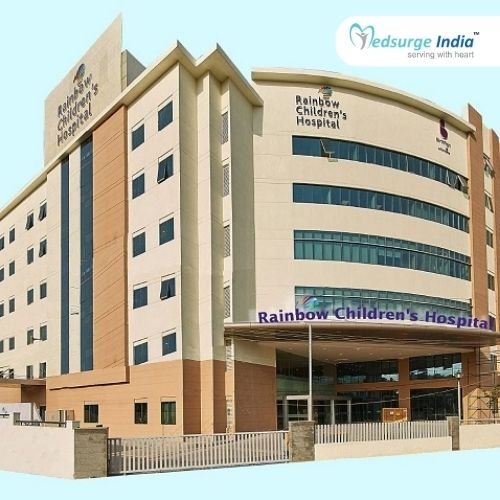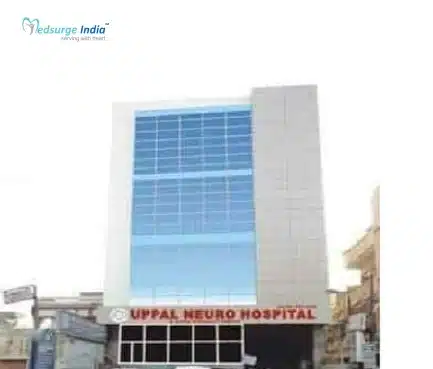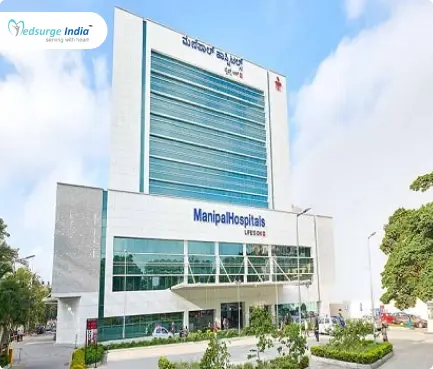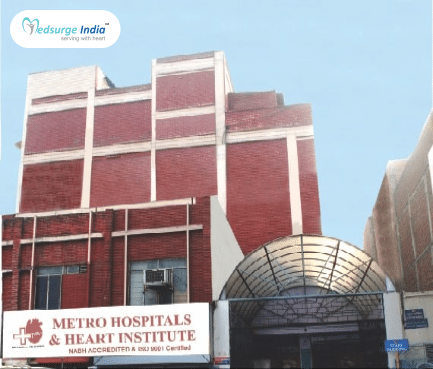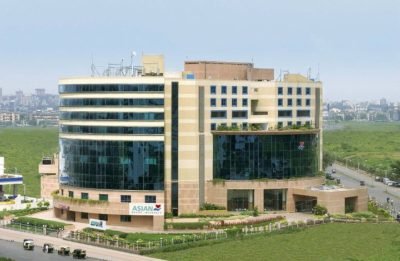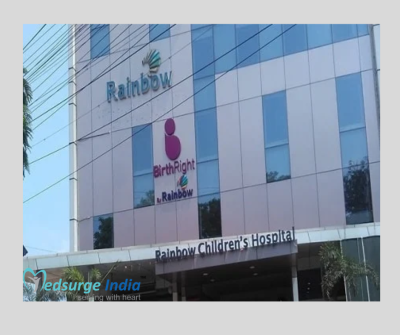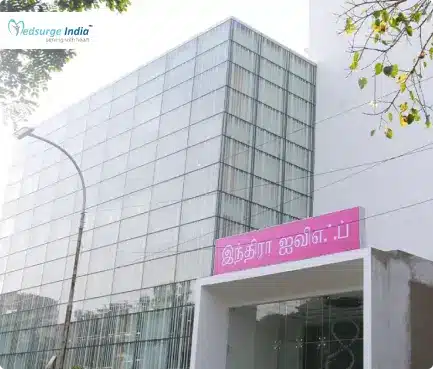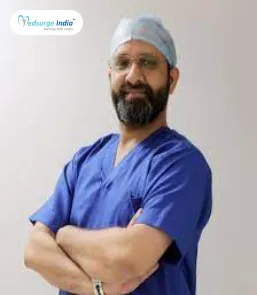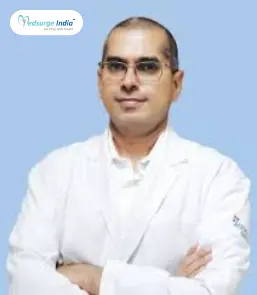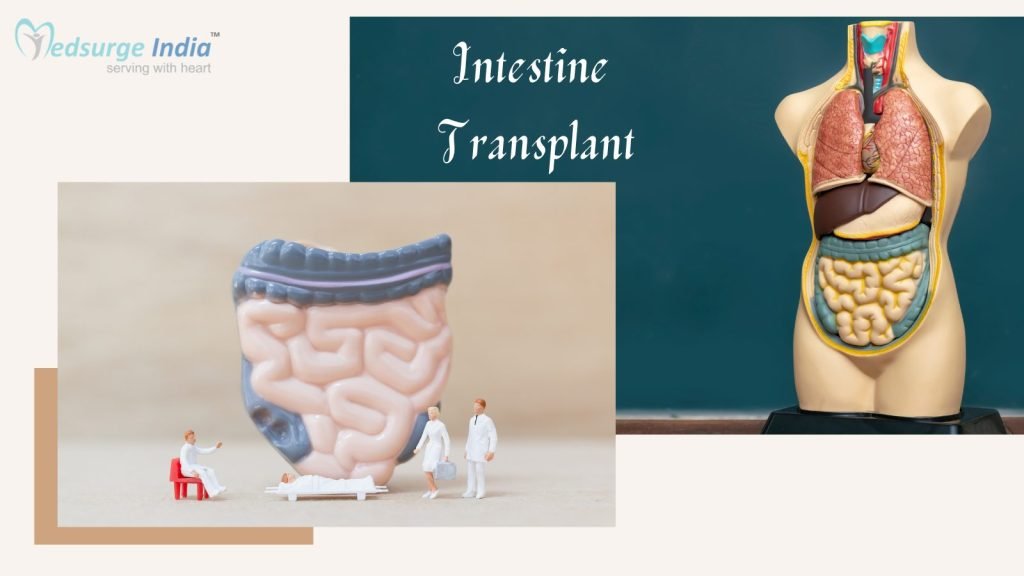
Intestine transplantation is a surgical treatment which is used to treat patients with intestinal failure and other issues associated with parenteral nutrition (PN). The conditions that may require an intestine transplant can be discovered at birth or as the child grows older.
Total Parenteral Nutrition (TPN)
For the human body, and the organs to operate properly, nutrients are required. If they can’t be consumed owing to intestinal failure, they’re given intravenously by complete parenteral nutrition, which involves inserting a catheter into the patient’s neck, arm, chest, or groin. Because using a catheter on a long-term basis increases the risk of infections, bone dislocation, and liver disease. As for that, Intestine Transplant in India has become the only long-term treatment that is for intestinal failure.
Intestine Transplant Cost in India are low as compared to other countries like the US, Russia, and the UK and patients seeking Intestine transplant in India have access to the greatest facilities, which provide reasonable healthcare packages, premium medical tools, and the assurance of first-rate medical personnel.
What Is Intestine Transplant
In the case of acute or chronic intestinal failure, an intestine transplant is performed, which involves surgically removing the diseased part of the small intestine and replacing it with a healthy small intestine from a donor.
One of the rarest types of organ transplants in India is intestine transplant. However, during the last decade and a half, the number of favorable outcomes and survival rates has progressively increased. Small bowel or small intestine transplant is another name for this procedure.
People who are dependent on TPN for an extended period of time may suffer and require a small intestine transplant. If children are placed on TPN for an indefinite period of time, they are more likely to develop major infections or liver problems.
What Is Intestine Failure
Intestinal failure occurs when the gut’s ability to absorb water, macronutrients, micronutrients, and electrolytes is compromised (IF).
The inability to absorb all of the above aspects will have a significant impact on one’s quality of life.
Acute IF (Phase 1 and 2) is the first stage of the disease and can persist anywhere from weeks to months.
What Are the Causes of Intestinal Failure
Before going into detail about the causes, it’s important to note that they can be classified as congenital or acquired, GI or systemic, benign or malignant.
Causes of Intestinal failure are based on the following gastrointestinal conditions:
- Crohn’s Disease
- Celiac Disease
- Motility Problem
- Radiation
- Short Bowel Syndrome
How Intestinal Failure Is Managed
Organ transplants are performed by a surgeon and their team of specialists who are experts in this field. This surgery is rarely done as you may have guessed, and requires strategic preparation and risk evaluation.
This, combined with anesthetic and dietary knowledge, will greatly improve the odds of survival and success.
This is not a transplant that should be undertaken and accepted by a faint-hearted surgeon who has no idea what they are doing.
How Is an Intestine Transplant Performed
- Precision and laser-sharp focus are used in intestine transplant procedures.
- During a Small Intestine transplant, the surgeons will carefully remove the damaged small intestine and replace it with a more healthy one, which can take about 8 hours or more.
- Before being used for transplantation, the healthy small intestine will always be examined for any anomalies or infections before the transplant.
- In accordance with the guidelines of an ileostomy, the surgeon will direct a tiny section of your small bowel through a hole in your belly known as the stoma.
- After the surgery, the stoma will let your body’s waste to exit and enter an external pouch. This will enable your transplant team to assess the condition of your transplanted intestine.
- Your ileostomy may be closed and your bowel rejoined a few months after the procedure if everything goes according to plan. But this won’t always be the case. As a result, wishing for the best is the most practical course of action in such a situation.
- It’s important to keep in mind that Intestine Transplant in India is tough to plan and execute. As a result, being overconfident in your recovery is both unrealistic and uninformed.
- Give your body and mind enough time to recover fully. As you have read, even the surgeon and his or her team will need to plan ahead of time how they’ll approach this procedure in order for it to be effective.
Intestine Transplant Cost in India
Intestine transplant in India can starts from USD 50,000. With that the price for:
- Small intestine cost in India starts from USD 50,000.
- Large intestine transplant cost in India starts from USD 50,000.
Furthermore, the entire Intestine treatment cost in India can also depend on a number of criteria such as:
- The patient’s overall costs may change depending on the hospital they choose.
- The room selection – either standard, deluxe, or super deluxe will also determine the total expense for treatment.
- The type of treatment suggested by the doctor will also define the cost of the overall treatment.
- Fees for the hospital’s staff of doctors for their selfless efforts.
- The cost of Medicines.
- The standard test for diagnosis and other diagnostic procedures.
- The price of any necessary follow-up visits after the operation is finished.
Get Free Cost Estimation
Procedure
What Are the Types and Treatments of Intestinal Transplants Possible
A potential patient should be aware that three types of intestine transplantation in India are available. In any case, your doctor will be able to advise you on the best sort of intestine transplant to help you live longer and better:
- Isolated Intestinal Graft
- Combined Intestinal-Liver Graft
- Multi-Visceral Graft
In the same way that there are different types of intestine transplants, there are different types of intestinal transplant treatments. They are as follows:
- Isolated intestinal Graft
- Combined Intestinal-Liver Graft
- Multi-Visceral Graft
What to Expect
Before the Procedure
- After your doctor says you are a good candidate for the intestine transplant, you will have to go through a battery of tests and scans to establish the risks and benefits of the procedure.
- Following this evaluation, you will be placed on a waiting list in the hopes of finding a living or cadaver donor in the near future.
- The waiting period is short because this transplant is comparatively rare, but the organ requirements are demanding.
- Your condition will be maintained medically while you wait, and your TPN status will be updated weekly based on the findings of your lab tests.
During the Procedure
During the procedure for an intestine transplant in India, you will be given a general anesthetic by your doctor, and you will be unconscious throughout the procedure. When you wake up from this arduous operation, which takes 8-10 hours, sometimes even longer, expect to be tired, groggy, and sore.
After the Procedure
- To recover, you will be transported to the Intensive Care Unit (ICU). Following that, your surgeon and their transplant team will closely monitor you for any signs of problems or infections.
- After 4 to 6 weeks, you should be able to leave the hospital.
- If you begin to experience mental stress as a result of the surgery, speak with your friends and family; they will provide you with all of the support you require during this difficult time.
Results
The Intestine Transplant Success Rate
Because of advances in medical research, the number of people who have survived has increased over time. The success rate of intestinal transplants is currently 70%, and in some cases much higher.
After learning that the first intestine transplant was tried in 2013, we can claim that we have come a long way.
Diet and Nutrition Recommendation after Intestine Transplant
- Your assigned nutritionist will ensure that you and your family are well-informed about how to maintain food safety at home. Nonetheless, consume only well-cooked food that is served hot. When preparing for you, request that your family members maintain extreme hygiene.
- For someone with your condition, food cross-contamination is a significant concern.
- Animal-based meals should not be eaten uncooked or undercooked. It’s also a no-no to eat raw or undercooked eggs. It is also not advisable to eat soft cheeses.
- Such food limitations may seem oppressive but be assured that they were implemented for your long-term benefit.
Why Do Individuals Prefer to Have Intestine Transplant in India
The country has some of the best medical care facilities and services in Asia, making medical tourism in India very popular. The best intestine transplant hospitals in India provide all types of cancer-related surgeries using advanced technology. Also, the intestine transplant cost in India is much more affordable as compared to other states or nations around the world. An international patient can expect to pay 50-60% less for a total intestine transplant cost in India.
Hospitals that treat intestine transplant in India provide comprehensive appropriate treatment, including comprehensive pre-operative evaluations, minimally invasive surgical options, and post-operative rehabilitation programs. Patients can expect personalized treatment, individualized attention, and compassionate care at these medical facilities. The hospitals are accredited by top international organizations such as the National Accreditation Board for Hospitals and Healthcare Providers (NABH) or the Joint Commission International (JCI).
How Can Medsurge India Help?
Medsurge India is a prestigious support system for patients looking for doctors, hospitals, and specialized treatments. We’ll find the most suitable medical options for you. Regarding your medical issues, our team will give you a list of certified, reputable, and trusted doctors and hospitals. Additionally, we offer a treatment strategy that fits your budget. Apart, we assist patients with obtaining travel authorizations, medical visas, and a multitude of other things.
The Most Important Frequently Asked Questions
Q: How Long Can You Go Without Having a Small Intestine?
A: Because the small intestine absorbs the majority of nutrients from meals, you would have to be fed intravenously if you lost your entire small intestine. The small intestine, on the other hand, is 20 feet long and unlikely to be completely lost.
Q: Is It Possible to Donate a Small Intestine?
A: Your intestines include your small bowel. It’s the coiled elastic tube that converts the food and beverages you consume into energy for your body. It is not a small organ; it is roughly six meters in length and is one of the organs that can be given after death. The success rate of small bowel transplants is increasing all the time.
Q: Does the Intestine Regrow?
A: The gut is the most regenerative organ in the human body, with its epithelium, or lining, regenerating every five to seven days. The epithelium can resist the constant wear and tear it endures while breaking down food, absorbing nutrients, and removing waste because of continuous cell renewal.
Q: What Happens If You Remove Your Intestine?
A: You may have difficulty with loose stools and obtaining adequate nutrients from your diet if a big portion of your small intestine was removed. You may need ongoing medical therapy if you have a long-term (chronic) ailment like cancer, Crohn’s disease, or ulcerative colitis.
Q: Is It Possible to Heal the Intestines?
A: Your bowel will be amended or removed if it is damaged. Bowel resection is the medical term for this treatment. If a part is removed, the healthy ends will be stitched or stapled back together. When a section of the intestine is removed, the ends of the intestine cannot always be reunited.
Top Hospitals for Intestine Transplant in India
Top Doctors for Transplant Surgery
Dr. Rahul Roy
Senior Consultant
Experience: 16+ years of experience
NH Rabindranath Tagore International Institute of Cardiac Sciences, Kolkata
Kolkata, India
Dr. Anupam Saha
HOD , Fellowship, MS, MBBS
Experience: 21 years of experience
Venkateshwar Hospital, New Delhi
New Delhi, India
Dr. Ajitabh Srivastava
Senior Consultant
Experience: 13 years of experience
Fortis Memorial Research Institute, Gurgaon
Gurgaon, India
Dr. Swapnil Sharma
Consultant
Experience: 12 years of experience
Fortis Hiranandani Hospital, Vashi
Mumbai, India
Dr. Suresh Raghavaiah
Consultant
Experience: 17 years of experience
Apollo Hospital Bangalore Bannerghatta Road
Bangalore, India
Dr. Ravi Mohanka
Consultant , MS, DNB, MBBS, Fellowship, Fellowship
Experience: 17 years of experience
Mumbai, India
Dr. Sandeep Guleria
Senior Consultant
Experience: 33 years of experience
Indraprastha Apollo Hospital, New Delhi
New Delhi, India
Dr. Ashish Singhal
Senior Consultant
Experience: 12 years of experience
Fortis Memorial Research Institute, Gurgaon
Gurgaon, India
Dr. Abhideep Chaudhary
HOD , MBBS, MS, Fellowship
Experience: 11 years of experience
BLK Super Speciality Hospital, New Delhi
Noida, India



